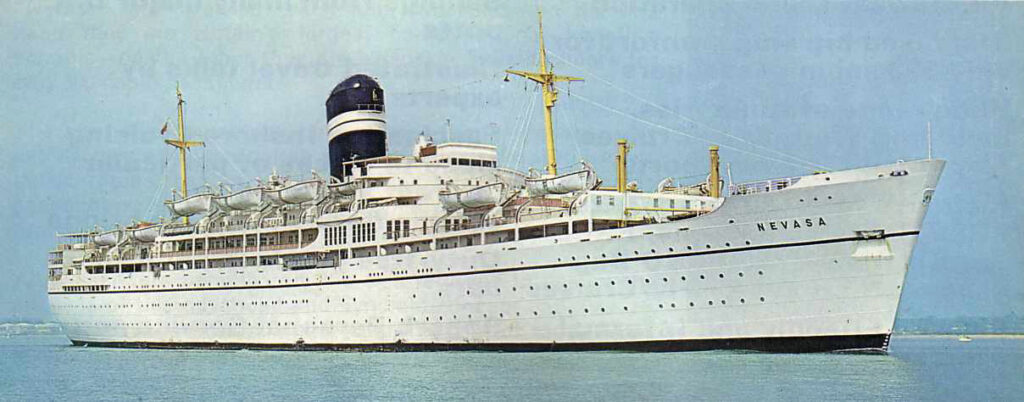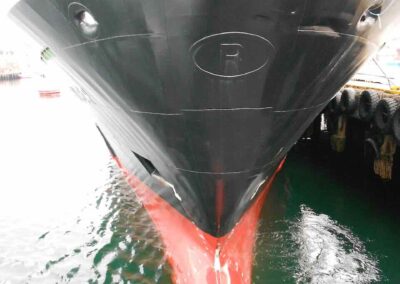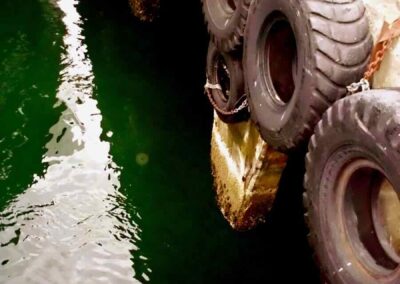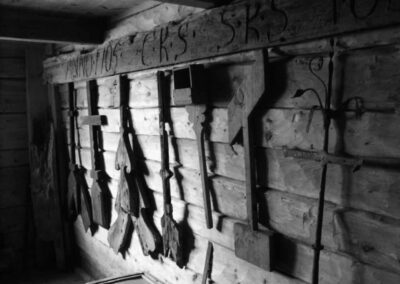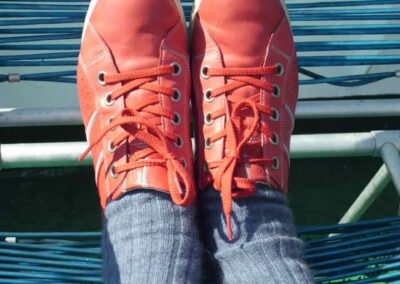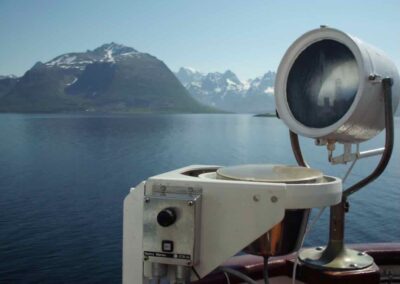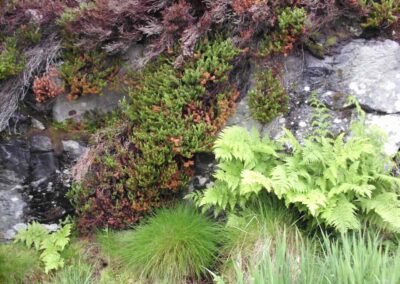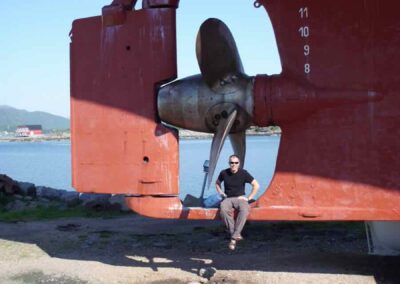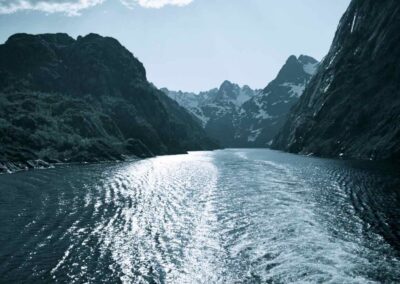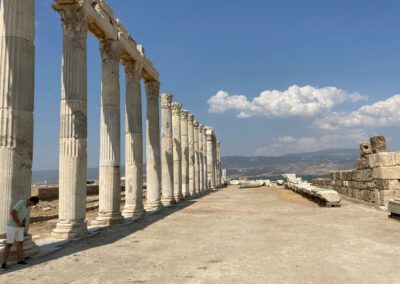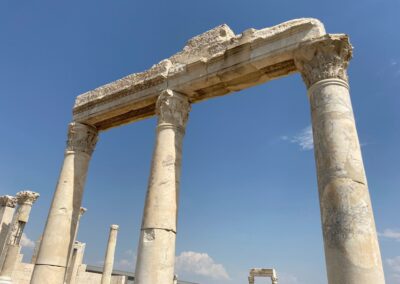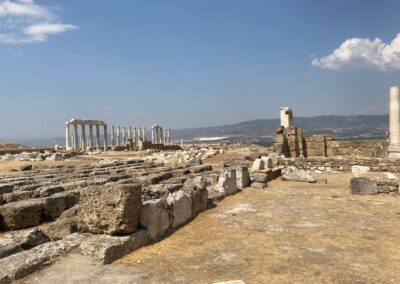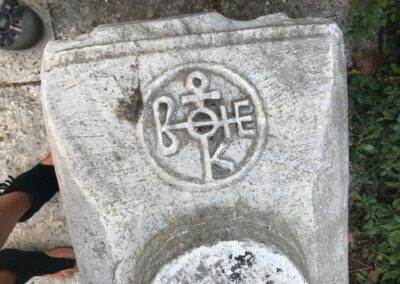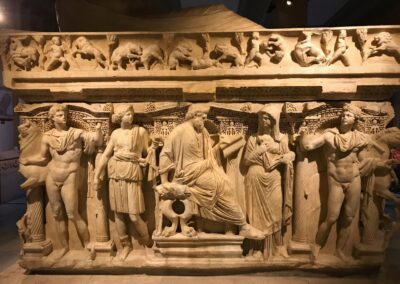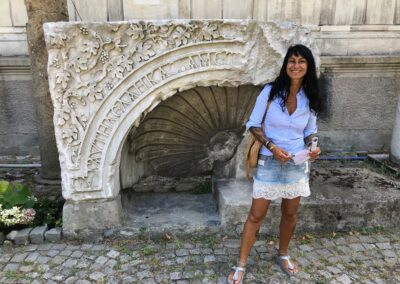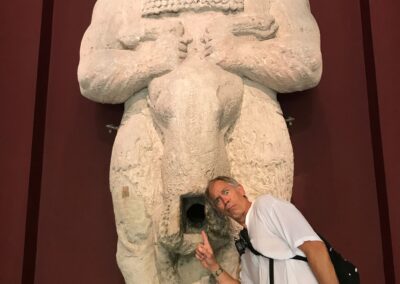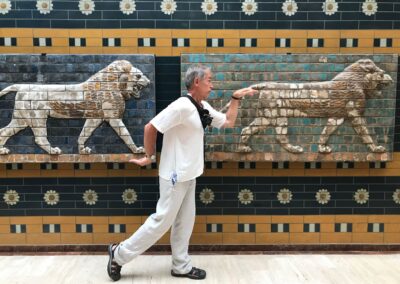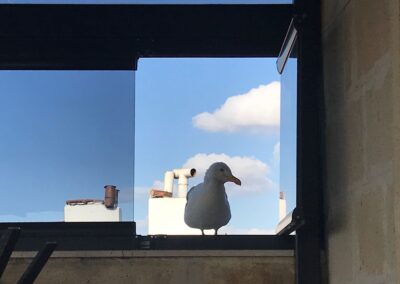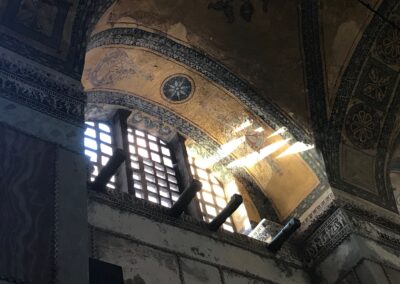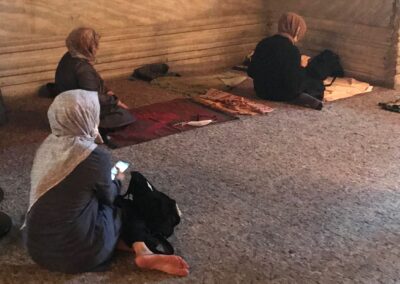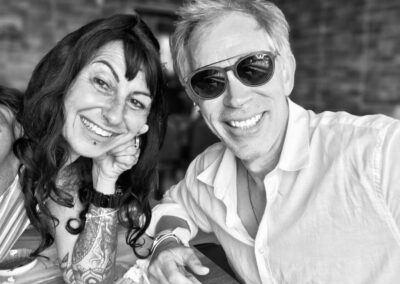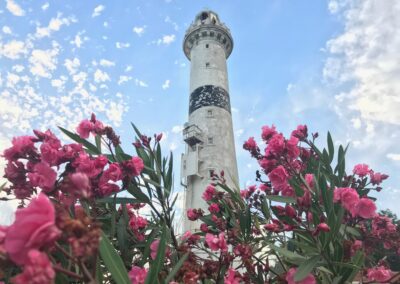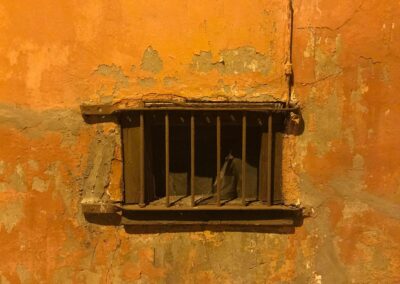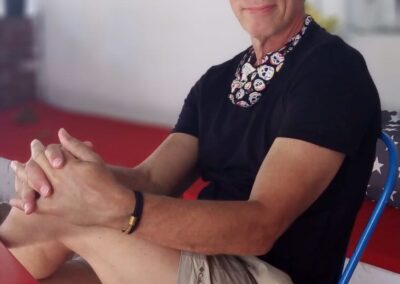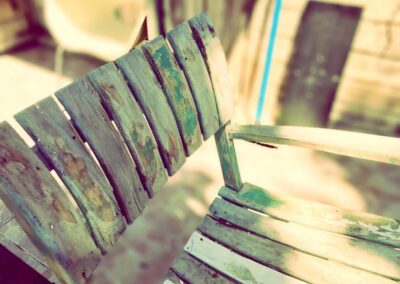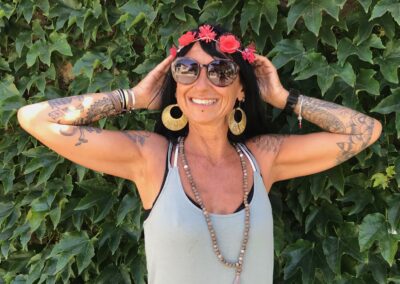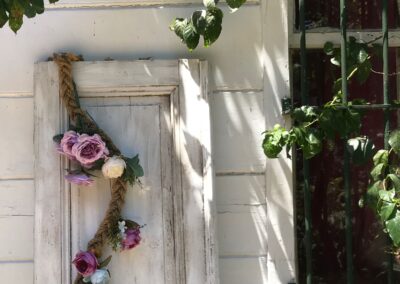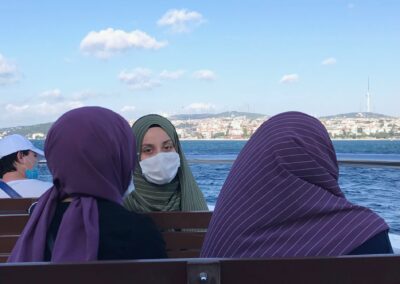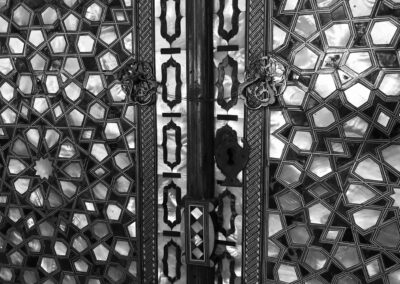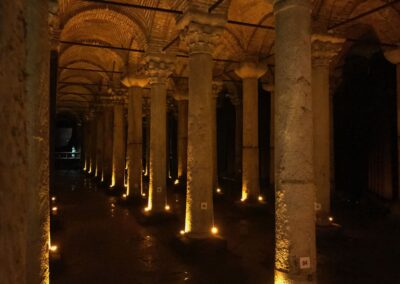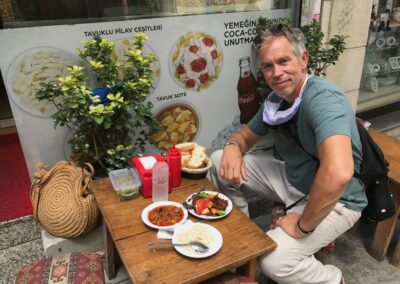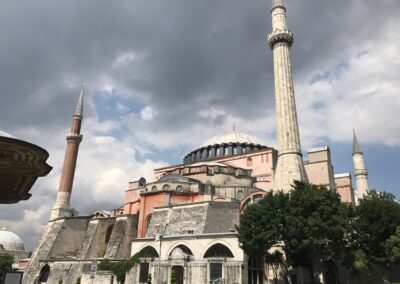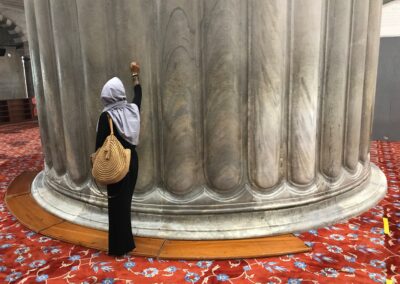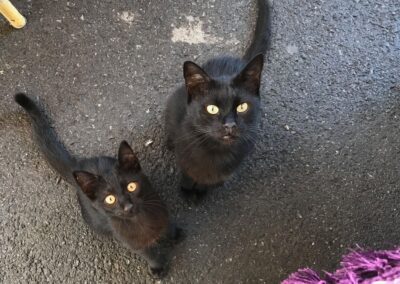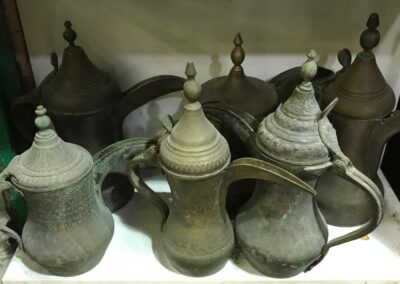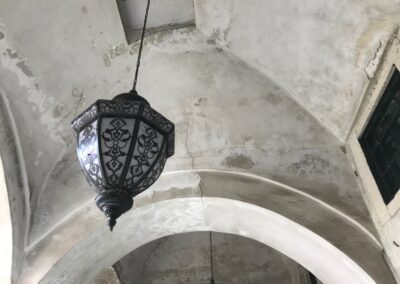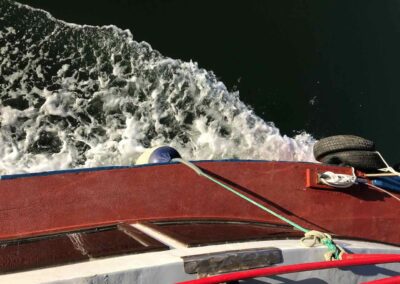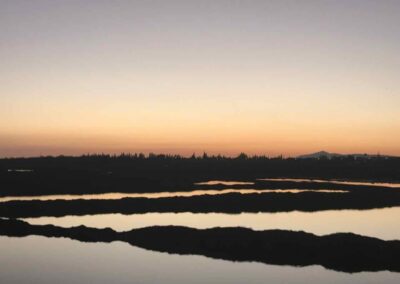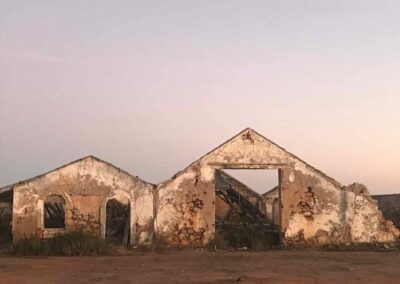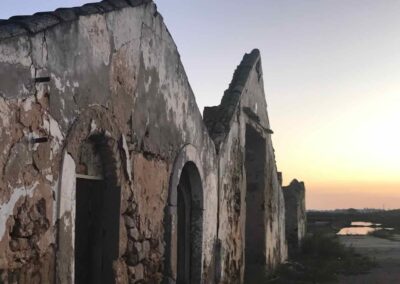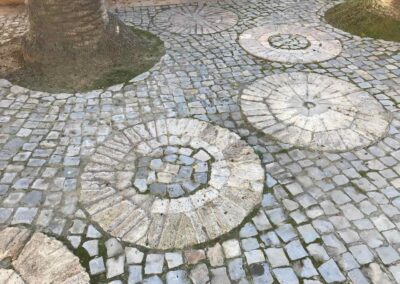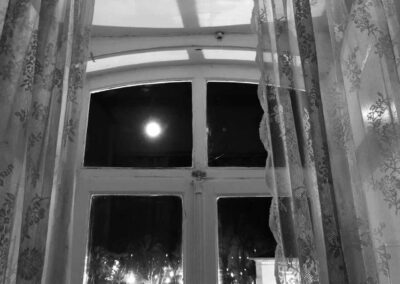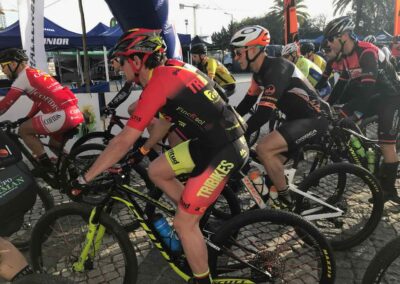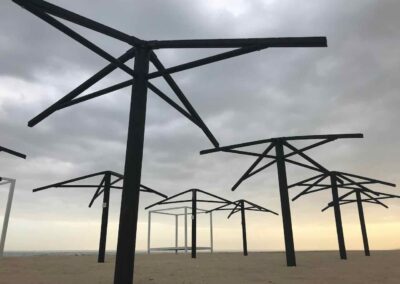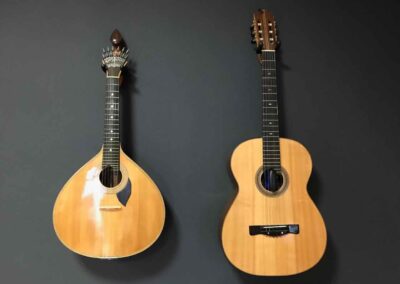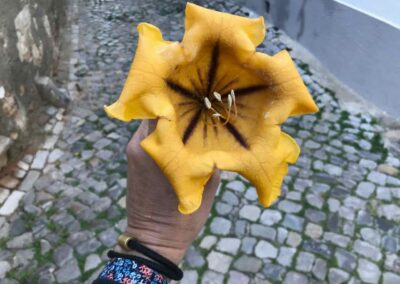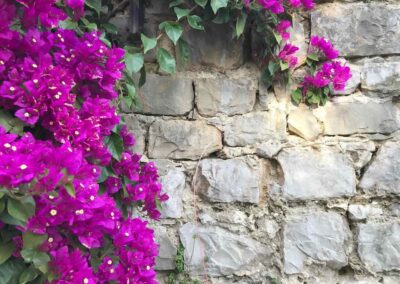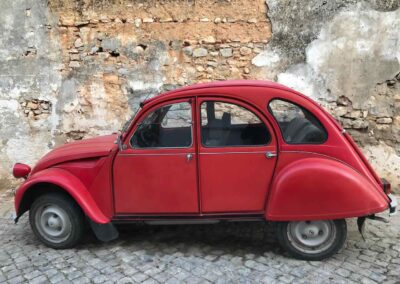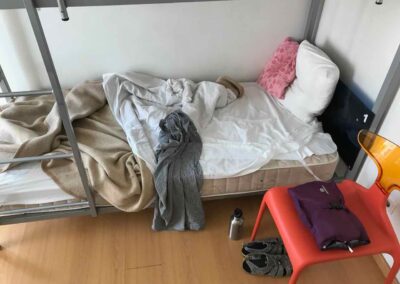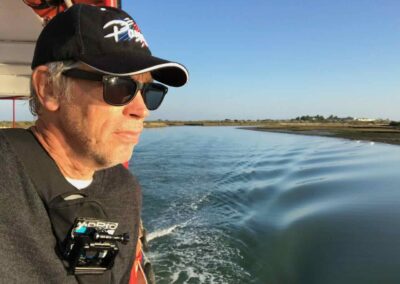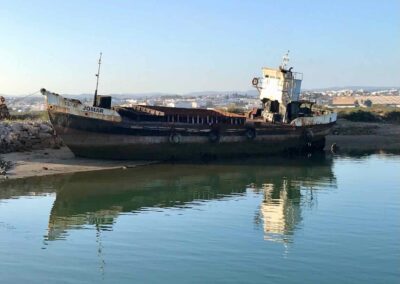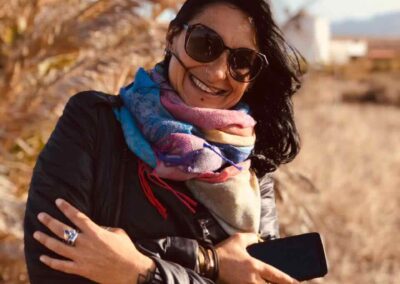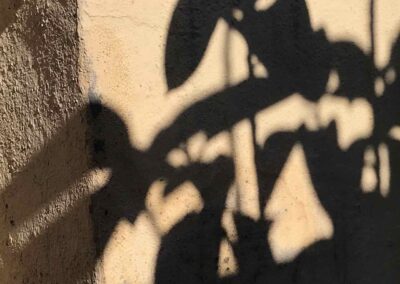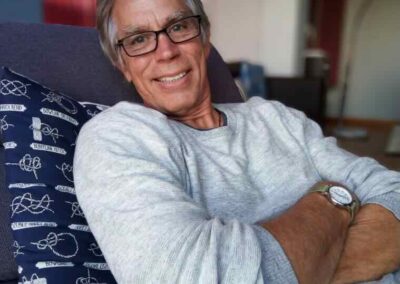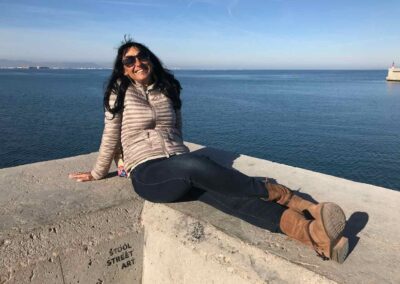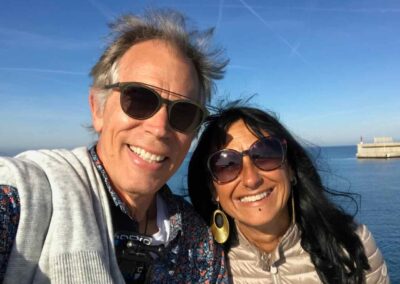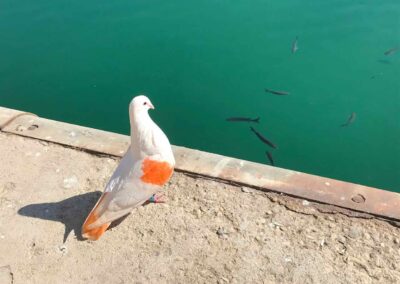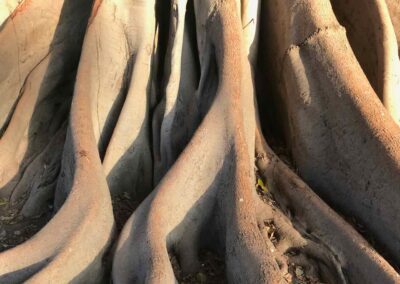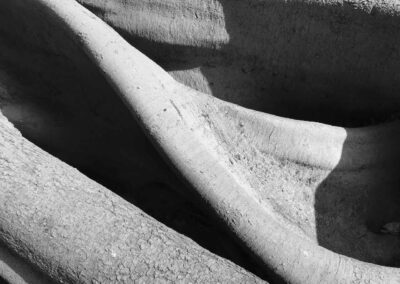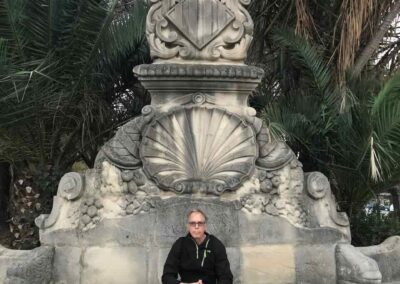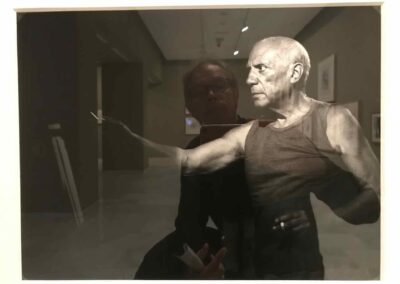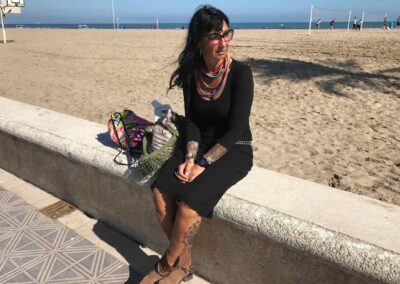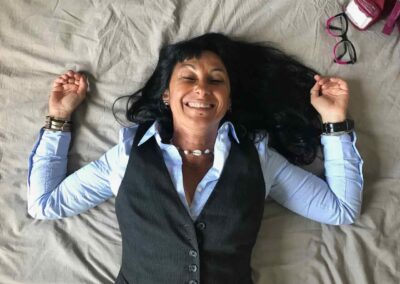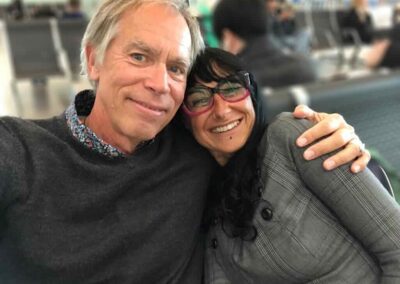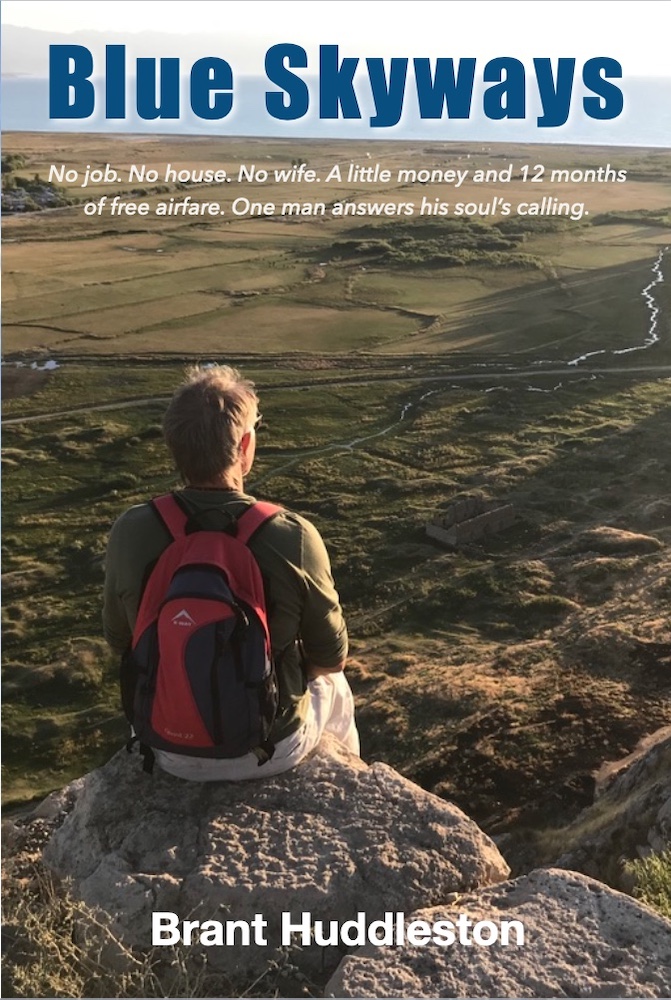How an American Guy in his 60’s Landed in Türkiye (aka Turkey)
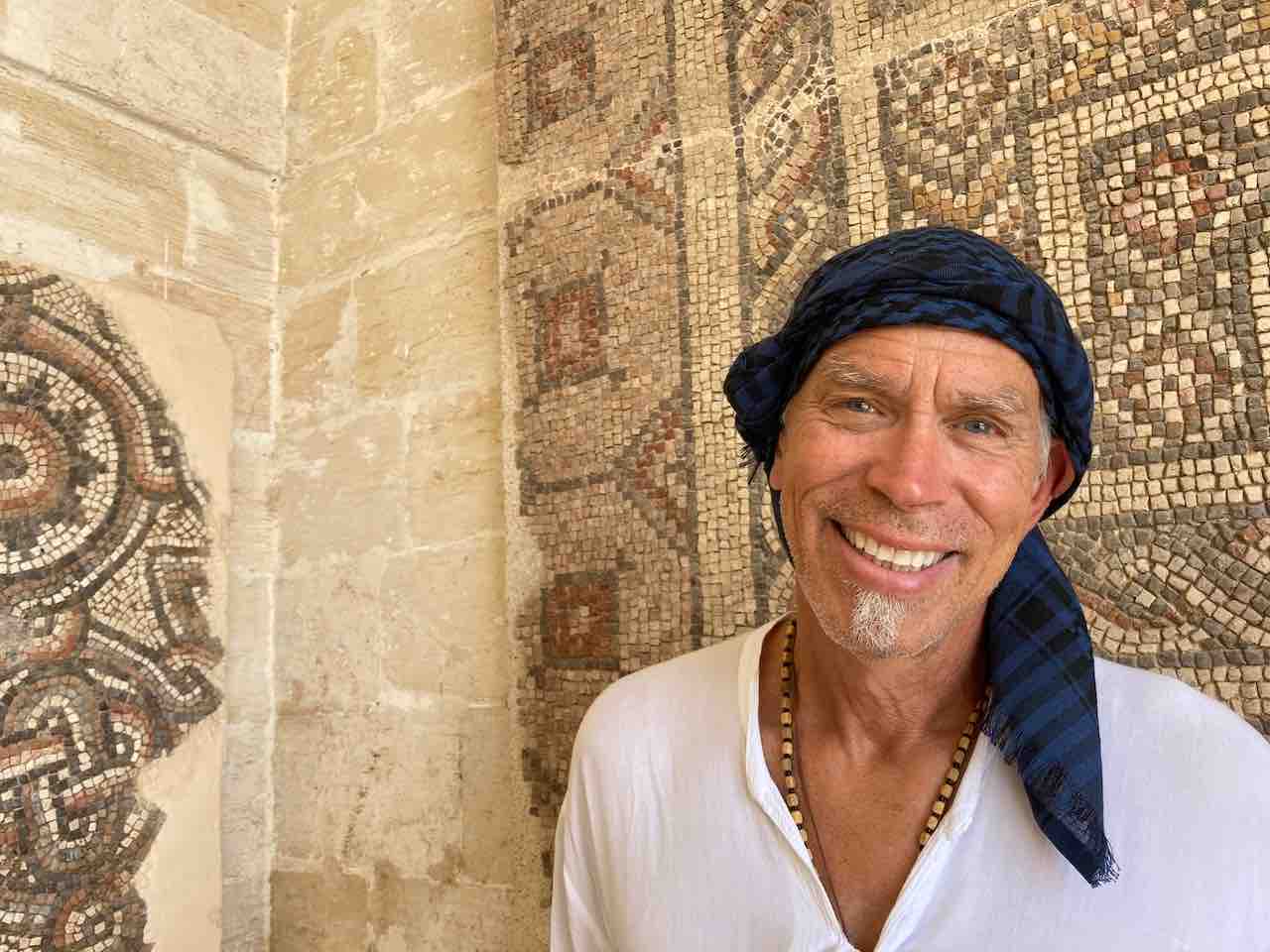
Photo by Fabiana Capuano
Introduction
John Lennon famously said: “Life is what happens when we are busy making other plans.” None of what happened to any of us during the age of COVID is what we planned, but here we are, and our stories are unfolding in their own magical, unpredictable ways.
Ever since I unexpectedly found myself living in Turkey in July 2020, I’ve been asked: “Brant. Exactly how did that happen?” The answer to that question is not a short one, so I decided to write the story you’ll find below in five episodes. In-between each episode are photos I took that I hope enhance the story.
My story begins on the careening decks of a ship caught in heavy seas somewhere off the coast of Cyprus. The year is 1967.
This is a true story, and it is a love story.
Episode One: Somewhere off the Coast of Cyprus
Cyprus is an island in the Mediterranean, half claimed by Greece and half by the Republic of Turkey. The two countries have crossed swords there in a battle for full possession, and to this day there is an uneasy standoff with a de-militarized zone between them.
I visited the island of Cyprus in December 1967 when I was just an 11-year-old boy, part of a three-week educational tour of the Mediterranean with ports of call in Morocco, Israel, Cyprus, Italy, and yes, mainland Türkiye. So you see, this most recent visit to Türkiye is my second. I have history with the country!
Our ship was the SS Nevasa, a name you might recognize if you’ve read my suspense/thriller novel Map of Dreams (by my pseudonym Paul Coruso.) The good ship makes an appearance there, as does the island of Cyprus. The images found in that book are taken from memories of my childhood voyage.
Nevasa was, at that time, a floating classroom for international students. Its purpose was to teach young people like me about the history of the ancient world. But since there were no parents on board, I can assure you I learned more about British girls and candy than I did the Peloponnesian war! I was supposed to be under the supervision of my two older brothers, both teenagers, but in reality, the cruise was three weeks of reckless abandon where I was as free as I’d ever been, sort of a bohemian “anything goes” floating party with occasional eye-opening shore excursions to parts of the world that were then (and in some cases, still are) quite exotic.
The Summer of Love?
1967 may have been the Summer of Love in the United States, with Americans still blithely unaware of the vicious carnage underway in Vietnam (Not entirely our fault; we were being lied to by our own government), but in the Middle East, where the Nevasa was headed, real shots were being fired. A hot war had just been fought between Israel and Jordan, Syria, and Egypt, the so-called “six-day war” of June 1967.
That visit to Israel was one of my “eye-opening” experiences. It was there I saw the charred remains of destroyed Israeli half-tracks (half truck/half tank) hulking on the side of the road. As I rode by in the captain’s car, my innocent face pressed to the window, I witnessed the carnage of real war and not just something from TV. It was Christmas Eve Day, 1967, and we were riding from the Nevasa’s port-of-call in Tel Aviv to Saint George’s monastery overlooking Bethlehem, where I was to spend the night.
Normally I would’ve taken that ride on a bus with my brothers and the other kids, but as fate had it, a nasty storm had brewed up between Cyprus and Tel Aviv, tossing the Nevasa about like a cork in a tumult. The ship rocked to and fro like the devil was rocking his baby’s crib, and the winds were so fierce that I saw them fling a heavy steel door like a piece of paper, crushing a girl’s bone as it slammed against her leg. The decks ran orange and green with the puke of students who, just the day before, had gorged themselves on bags of fresh oranges given to us in sunny Cyprus, now just a memory.
Confined to Bed
While I escaped the scourge of seasickness (a physical quirk I learned about myself at that time), I did not escape a more dangerous malady, pneumonia, which simply means “infection of the lungs.” It was to be my first bout with the illness, but far from my last, a fact that was heavily on my mind in the time of COVID when “pre-existing respiratory elements” was a known risk factor. By the time the Nevasa docked in Tel Aviv, I was confined to the ship’s infirmary under a doctor’s orders not to leave the bed.
But I was not about to miss Christmas Eve in the Holy Land. Although I was not raised in a religious family, I somehow knew this was a magical opportunity, so I begged and pleaded until the doctor relented. That is how I came to find myself in the captain’s private car on my way to Bethlehem, along with his first officers. I guess they were feeling mighty bad about that girl’s leg getting crushed, especially since she spent the rest of the cruise with her leg in a hip-to-ankle cast.
I was right about Christmas in Bethlehem. While I was not allowed to join the other kids for the tour, I vividly remember the nuns waking me just before midnight, lifting me to an open window in the monastery’s ancient stone walls so I could peer through. Below me, in the valley, lay the little town of Bethlehem, lit with thousands of candles and yellow electric lights. A cool breeze washed over my fevered face, carrying the sound of church bells ringing in celebration of the holy night. It was Christmas morning, 1967, and I shall never forget it.
Coming Up Next
My first visit to Turkey was just a week or so prior to that special night when I was still free from pneumonia. In the next episode, I tell how my experience there planted a seed in me that was not to bear fruit for many decades to come.
I don’t have any pictures from 1967, but I do have these from a cruise of the Norwegian fjords that I took in 2011.
Episode Two: Where is the Holy Land?
The Nevasa Stops in Turkey
The Nevasa’s first port-of-call, before Cyprus and before Israel, was the ancient city of Ephesus, loved by tourists for its Roman ruins. I vaguely remember kicking a brick-sized white stone with my sneakers and finding Greek writing on the underside. Otherwise, I was bored to tears by it all.
It wasn’t until many years later, well after I became an evangelical Christian, that I learned Ephesus was the city to which the very architect of Christianity, the Apostle Paul, wrote the 10th book of the New Testament, the book of Ephesians. Or so they say. That book could have also been written by a different author, one strongly influenced by Paul’s thoughts. The fancy word for that practice is “pseudepigrapha” — a practice that would drop like a bomb in my life many decades later.
While the “Holy Land” typically refers to areas surrounding Jerusalem, including Palestine and modern Israel, much Bible history took place in modern Türkiye. The footprints from both the Old and New Testaments are found all throughout Türkiye. Even the Apostle Paul, without whom we would not have this religion we call “Christianity,” was from the city of Tarsis, now found in Türkiye. The Republic of Türkiye, I submit, has as much claim to the title of “Holy Land” as any place does.
Voluntary Blindness
It seems odd to me now that I waited as long as I did, too long really, to take a hard, rigorous, disciplined, studied look at the Bible and the men who wrote it, considering, as I did for 30 years, that the scriptures were allegedly inspired by “God” and useful for virtually every aspect of my life. “Be in the word” I was continually admonished by my Christian leaders, but paradoxically, it was that very immersion that contributed to my undoing as a Christian.
I began to doubt the Bible’s accuracy when I learned about its many contradictions, about pseudepigrapha, about edits and additions made hundreds of years after the original writings, about translations conveniently serving the Roman Catholic narrative. The word “hell” for example, was grossly mistranslated (hear my interview with a Bible scholar on that subject.)
Then there is the incongruous timeline of events. Some of the Gospels were written 50 years after Jesus died! I can’t even remember what color shirt I was wearing yesterday, much less what was said. I became more open to accepting the stories as illuminating metaphorical myths rather than historical facts.
The Lights Turn On
I realized I had not built my spiritual house on bedrock, but rather on the shifting sands of an inspired set of texts shaped by the spiritually gifted but ultimately flawed hands of men. The scriptures were and are indeed useful, and I am still mindful of them, but I do not believe their predictions of my final destiny. That destiny, I believe, is in the hands of a “God” too great for any man to comprehend.
Once I finally let go of the notion that I might spend eternity in conscious torment at the hands of a judicious God angry at me for my misbehavior on this side of the metaphysical divide, I was more willing to live life to its fullest, even hedonistically at times, giving less care to how it might affect my destiny and more care about my present moment. I was, for example, more willing to cut myself loose from a marriage that wasn’t working, to a woman who didn’t seem to care much for me, and explore what else the universe had to offer. That is the marriage one reads about in the opening chapters of my book Blue Skyways.
Ghosts That Whisper
It was not an easy decision for me to leave that marriage, in fact, it was hands-down the hardest decision I have ever made. In no small way the tentacles of my Christian sense of right and wrong, good and evil, reached deep into my spirit and attempted to strangle me.
“You are a poser and a cheat,” my negative voice whispered in my ear. “You are not the good man you think you are. You have made a mockery of marriage, before your friends and children. You broke vows. You traded your integrity for pleasure. Remember the words of your Christ: ‘But what does it profit a man (that means you Brant) to gain the whole world and lose his very soul?’ Son, remember that in your lifetime you chose to receive good things, but in the afterlife and for all eternity, you shall be in agony, reaping the bitter harvest of the seeds you sowed on earth.”
This is what I heard, especially at 3 AM, the so-called “hour of the wolf,” when I wake to the haunts of my past and the accusations of my ghostly tormentors.
Finding Your Personal Holy Land
I suspect most of us have a negative voice. A vital task of enjoying the abundant life, a “must have” in the knapsack we carry on our journey to wholeness, is the ability to turn down the volume of that voice and turn up the volume of our positive voice, the one that reminds us that we are wonderfully made, fun and interesting, beloved by God, a walking miracle, exploding with potential, a holy temple of a holy spirit, and that the kingdom of God resides within us.
That is where the true holy land is.
Coming Up Next
In the next episode, I ask the most important questions you will ever ask yourself:
What do you want?
Who do you want to BE?
Where do you want to GO?
What obstacles are holding you back from following your DREAMS?
These are questions I was asking myself as the cold of a Portuguese winter settled into my bones, and I found myself wandering alone through the wet streets of Porto.
Below are photographs I took in 2020 – 2022 of ancient ruins in Istanbul and Laodicea (a city that features prominently in my suspense/thriller novel Map of Dreams) that are similar to what I would have seen in Ephesus in 1967.
Episode Three: The Most Important Question
In the last episode, I asked the question “Where is the holy land?”
“It is within you,” say the ancient wisdom teachers.
But there is another question that each of us needs to answer for ourselves, and it is the most important question you will ever be asked.
What do you want?
I’m told this is a question Jesus asked more than any other. I take it to mean:
What do you want to DO? Who do you want to BE? Where do you want to GO? What beliefs hold you back from realizing your DREAMS?
A Man Stuck on his Mat
There is a Bible story of an invalid man who waited 38 years by a pond, sitting on a mat hoping to be healed. An angel would occasionally fly by and ripple the surface of the pond with her wings. The first person in the water after the rippling would be healed.
When Jesus came upon the invalid man, Jesus asked him the most important question any one of us will ever answer: “What do you want?” I can only imagine what went through this man’s head when Jesus asked him that:
“Are you fricking crazy, holy man?!?” the invalid might have said. “Can’t you see I’ve been sitting by this damn pond for 38 years, swatting mosquitoes and shuffling my poor, tired, broken ass down to the water again and again, only to be beaten there by some other fool? What kind of a question is ‘What do you want?’ That should be obvious! I want to be healed!!! Are you stupid, Jesus, or just blind?”
But Jesus knew something about people that most of us also know, deep down inside, but are afraid to confront: We don’t really know what we want, and we create obstacles to finding out.
Knowing what you really, truly want in life is hard work. It requires brutal personal honesty, and sometimes we are afraid of what we might learn. It’s easier to just maintain the status quo of our lives, sit on our mats by the pond (the symbols of our comfort zone), and whine about “what is” or “what is not.”
His anguish was of what could have been…but wasn’t. His cry could easily be any of ours, those of us who feel helplessly caught in the wheels of a machine that is bigger and more powerful than we are.
But it doesn’t have to be that way. We are not as helpless as we think we are.
At the end of the Bible story, Jesus healed the man without the angelic water. “Your faith has healed you,” Jesus said. “Now pick up your mat and go live.” The man’s healing never was about anything external, like water, or a job, or a spouse, eternal power, or money. His healing came from within, the inner man, and from his own “faith.” The invalid man on the mat was a victim of his own limitations for 38 years until Jesus came along and freed him. Once the man’s comfort bubble was popped, he had the opportunity to become fully alive.
“The glory of God is a man [human] fully alive.” Saint Irenaeus
The Questions We All Must Answer
What do you want? What do you want to DO? Who do you want to BE? Where do you want to GO? What beliefs hold you back from realizing your DREAMS?
These are questions I have wrestled with for years. You can feel me working through them in Blue Skyways. That book ends with a bit of a cliffhanger: me wondering if I would end my 12 months of free travel in Asia, the United States, Latin America, or Portugal.
It will not spoil the book for you by revealing that I ended up in Portugal, where I was to meet a black-haired, tattooed, curvaceous sailor who rolls her own cigarettes, and has stories of her own about traveling to 110 countries. That would be the colorful Fabiana Capuano, aka “Fabi.”
Like two survivors of a Covid shipwreck, Fabi and I found ourselves tossed together on the same lifeboat floating its way toward Türkiye, where we live together now. We would not have met if it weren’t for one lucky guess in the kitchen of a hostel in Tavira, Portugal. As the Greek philosopher Publilius Syrus, Sententiae, said in 43 B.C., “Homo semper aliud, Fortuna aliud cogitat,” meaning: “Man intends one thing, Fate another.”
Coming Up Next
In the next episode, you’ll get to meet Fabi in earnest, a woman who had a fire burning inside of her, one she hardly recognized at the time, one urging her toward a more expansive but much riskier, life — a fire that Jack Kerouac says in his famous book On the Road “burns, burns, burns like a Roman candle” — a fire that demands attention. Maybe you feel it too?
The pictures are ones I took of Istanbul shortly after Fabi and I arrived there in July 2020.
Episode Four: The Fabulous Fabi
In the last episode, I asked the most important question we will ever be asked: What do you want? The answer is as unique as we are — no one can answer that question for us. We must answer it for ourselves, and we must keep answering it as the chapters of our lives unfold.
The Cusp of a New Chapter
Weeks before I met Fabi, I was wrapping up the 12 months of travel I describe in Blue Skyways. Because of the way my brother’s gift of free airfare was structured, it made sense for me to take as many flights as I could during that year of travel. As a result, I was rarely in one place for more than a few days, and all that moving around had me pretty tuckered out. In fact, I was exhausted, and I had a book to write!
I was planning one last hurrah…a trip to Asia…but as fate planned it, I changed my mind at the last minute and went to Portugal instead. There I spent January 2020 wandering the dark streets of old Portuguese towns, their cobblestones glistening with cold rain; taking long walks along the empty beaches of the Atlantic, its white-capped surf roaring with terrifying intensity, and huddling in an unheated room in Porto, writing what would become the final chapters of the book.
I was a little bit lost in those days. Sometimes that is needed for doing the hard work of healing the inner man. You get lost, and then you find your way back, forward, or sideways. The state of being “lost” is often just a spell marinating on your own little mat getting softened up for what’s coming.
“When you can’t go forward, and you can’t go backward, and you can’t stay where you are without killing off something deep and vital in yourself, you are on the edge of creation.” Sue Monk Kidd
Little did I know then that I was on the cusp of a new chapter of my life, one that would, within six months, lead me to the warm waters of Türkiye’s famous turquoise coast.
Zebras in New York City?
Tired of the cold, in late January I left Porto and started heading south in search of warmer weather. I ended up in a hostel in the coastal town of Tavira, Portugal. At that time I had been separated from my Brazilian wife for 13 months, with no dependable signs of recovering the marriage.
It’s important to note that hostels used to be called “Youth Hostels,” because they typically appeal to young people, and if you’ve read the chapter of Blue Skyways entitled “Zimmer Frei,” you know that some hostels actually refuse to host older people. That’s called “ageism,” in case you were wondering. Even today, finding an older person in a hostel is uncommon, kind of like finding a zebra on the streets of New York City.
I have a few more zebra stripes than Fabi does (I am older than she) but I think we both sensed when we saw each other that we were unusual, that we had life stories that go longer and deeper than your average hostel guest.
Tavira is a bit out of the way. You have to want to be there to be there. I heard about the place from International Living magazine, and it seemed like a town where I might want to test my long-standing intention to try living outside the United States. Located on Portugal’s southern coast, just a stone’s throw from Spain, Tavira has all the ingredients I was looking for: Mediterranean climate, stable host country, car-free living, rich cultural life, and a lower cost of living than the U.S.
The day I met Fabi, I had already scheduled time with a local real estate agent who was to show me properties in and around Tavira, from the eastern “Algarve” (Portugal’s warm, southern coastal region) all the way to Lagos, a much larger city in the western Algarve. I was looking forward to it.
 Tavira’s one and only hostel, founded decades ago by Portugal’s controversial and autocratic leader Salazar (read my essay on him here) has a spacious, open-air courtyard just inside its walled entrance leading from the narrow, cobblestoned street that runs out front. Nearly everything in Portugal is cobblestoned, often with elegant designs; a lovely feature of the country.
Tavira’s one and only hostel, founded decades ago by Portugal’s controversial and autocratic leader Salazar (read my essay on him here) has a spacious, open-air courtyard just inside its walled entrance leading from the narrow, cobblestoned street that runs out front. Nearly everything in Portugal is cobblestoned, often with elegant designs; a lovely feature of the country.
The hostel’s courtyard includes a ratan outdoor sofa, a small black iron table with two chairs, and a six-foot-tall potted palm, its emerald green, feathery fronds splayed against an alabaster wall painted a cozy “Tuscan” orange, a color I love due to its hues of brown and gold. This wall towered to an open sky of flawless, clear blue — common to the Algarve in the summertime.
Hostel guests would come to the courtyard to smoke, hang out, and meet other guests. For me, it was a nice place to write under the open sky while sipping an espresso purchased from the hostel’s coffee machine.
Attracting the ‘Cuda
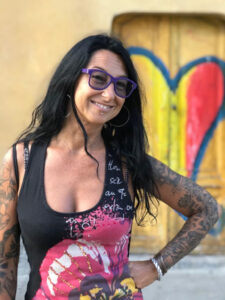 I noticed Fabi. She’s hard not to notice. She has jet black hair and eyes, and skin the color of cappuccino, betraying her all Italian blood. She has more curves than an Italian road race and dresses like a tasteful version of Cyndi Lauper. Most remarkable are Fabi’s many tattoos, which cover both arms down to her wrists, the top half of her back and shoulders, and the calves of her legs. I was later to learn these tattoos chronicle Fabi’s journeys around the world, which are extensive, to say the least. Her tattoos are tastefully done, all a single color (black), which renders beautifully on her bronze skin.
I noticed Fabi. She’s hard not to notice. She has jet black hair and eyes, and skin the color of cappuccino, betraying her all Italian blood. She has more curves than an Italian road race and dresses like a tasteful version of Cyndi Lauper. Most remarkable are Fabi’s many tattoos, which cover both arms down to her wrists, the top half of her back and shoulders, and the calves of her legs. I was later to learn these tattoos chronicle Fabi’s journeys around the world, which are extensive, to say the least. Her tattoos are tastefully done, all a single color (black), which renders beautifully on her bronze skin.
Sure, I noticed. Who wouldn’t? But I was occupied with my writing, and she was talking with other hostel guests, so we didn’t speak at that time.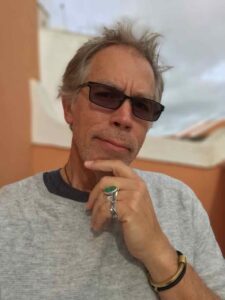 But there was one important piece of information about her that I overheard and tucked away in my walnut-sized brain. I heard her say she was Italian.
But there was one important piece of information about her that I overheard and tucked away in my walnut-sized brain. I heard her say she was Italian.
What did she notice about me in that courtyard? My jewelry. I wear two silver rings on my left hand and one on my right caressing a hunk of creamy turquoise as big as a moon rock. These trinkets are what Fabi noticed about me, plus, she told me later, my skinny legs, which I prefer to think of as, ahem, part of my “tall and athletic” build.
The Kitchen Heats Up
Our second encounter, later that day, was in the hostel’s kitchen where the coin-operated washing machine was located. Fabi was already seated at the table when I came blundering in and did something she would never do: I dropped my armful of dirty laundry on the floor, in front of the machine, so I could fish some coins out of my jeans.
I know now that somewhere in Fabi’s brain, a “Don’t do that because it’s not clean” explosion went off, but she said nothing about it at the time. We said ciao to each other for the first time and, being the only two people in the kitchen, started with small talk.
“I am going to guess where you are from,” I said, feeling playful.
“Okay. Go ahead. Try,” she said, twisting a lock of her long black hair.
 “Italy,” I said smugly, retrieving the piece of info I’d picked up earlier in the day. Fabi seemed surprised that I got it right, so I pressed my luck.
“Italy,” I said smugly, retrieving the piece of info I’d picked up earlier in the day. Fabi seemed surprised that I got it right, so I pressed my luck.
“And now I am going to read your mind,” I said. “Think of a number between one and 10.”
Now, I had a bit of an advantage here. Years ago I learned that when a person is given this choice, there is a slight, very slight, statistical advantage to the number seven. I played the odds.
“Seven,” I said, loading my dirty clothes into the washing machine.
Now Fabi seemed truly surprised.
“That’s right! It’s my lucky number. How did you know?” she said.
“I told you. I can read your mind.”
Sometime later, after proudly relating this part of the story to a guy friend of mine, he said:
“Brant! You are an idiot!”
“How so?”
“She wanted to meet you,” he said. “She would’ve agreed to any number you picked.”
I felt like a fool, but of course he was right — more proof that women are smarter than we men are.
The Barracuda Strikes!
 I didn’t see Fabi again until the following morning when, wearing clothes freshly cleaned and dried, I was preparing to leave for my scheduled rendezvous with the real estate agent.
I didn’t see Fabi again until the following morning when, wearing clothes freshly cleaned and dried, I was preparing to leave for my scheduled rendezvous with the real estate agent.
“Good morning,” Fabi said, stepping up to me and holding out a slip of paper. “I am headed to the beach today. This is my phone number. Give me a call if you’d like to join me.”
Now, you could’ve pushed me over with a feather. When, besides never, had I been “hit on” by a gorgeous Italian woman on her way to languishing on the beach in her skimpy bikini? Could this be true? Was I being set up for a scam? I checked to make sure my billfold was still in my pocket. It was. Perhaps it was true. I felt the universe had smiled on me, but I had to offer my regrets.
“I’m sorry,” I said, accepting her phone number. “But I have another engagement today. I’d be happy to call if anything changes.”
“Okay,” she said, and we went our separate ways.
Our Tiny Paper Boats
There is a saying I like that says: “If you pick a flower, you touch a star.” It conveys the idea that everything in our mystical universe is somehow connected in ways even the most brilliant of our scientists cannot explain. A string is plucked on a lute in ancient Rome; a butterfly flaps its wings in the rainforests of Honduras; a truck backfires in Waco, Texas; and the earth shifts imperceptibly on its axis. Something changes “here” that makes a difference “there,” like a pebble that falls into the ocean, sending a ripple to a distance shore where it moves our tiny paper boat.
“Brant,” the real estate agent said apologetically. “Something’s come up and I can’t make it today. I’m sorry, but can we meet tomorrow instead?” The pebble fell.
“Oh sure,” I said, pulling Fabi’s crumpled phone number out of my pocket. “Tomorrow is fine.” My tiny boat rocked!
A moment later I was literally running to catch the ferry to the beach, which I was able to do with just seconds to spare.But if I had missed it, I probably could’ve walked on the water to get where I wanted to go.
A Blooming Romance
Fabi was waiting for me on the beach as promised. We spent the afternoon together, walking the dunes, wading in the surf, collecting shells, and taking those first cautious steps toward familiarity. As dusk approached, we caught the last ferry back to the city, climbed to the top floor of a hotel, and watched the setting sun glow in our red wine glasses.
The cool air of evening and the sparkling charm of Tavira at night brought out its international visitors, people from Scandinavia, Spain, Germany, the United Kingdom, and other parts of Europe. Fabi and I paused on the old Roman bridge in the city’s center, listening to the gentle babel of foreign tongues and the distant melody of a Faro singer.
A gibbous moon was rising over the ancient castle, casting yellow ribbons of light on the narrow river leading to the sea. We meandered through Tavira’s narrow streets, stopping in for a vegetarian dinner at a cozy Indian restaurant. It was a good day.
Where Do We Go From Here?
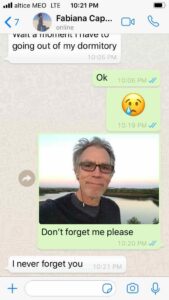 But it appeared our budding romance was to be short-lived. Fabi already had tickets to Valencia, a city in nearby Spain, scheduled for the following day. I walked her to the train station, and I think we both sensed a connection deeper than a typical beach romance. Even so, we both checked our hearts, set our faces like flint, and said our goodbyes — two hard-boiled veterans of too many prior relationships, none of them lasting.
But it appeared our budding romance was to be short-lived. Fabi already had tickets to Valencia, a city in nearby Spain, scheduled for the following day. I walked her to the train station, and I think we both sensed a connection deeper than a typical beach romance. Even so, we both checked our hearts, set our faces like flint, and said our goodbyes — two hard-boiled veterans of too many prior relationships, none of them lasting.
Fabi got on the train. I watched it pull away from the station, turned, and walked slowly back to the hostel, back to my writing, and back to the uncertainty of this long strange trip we call life.
A few hours later I received a text message from Fabi, a final goodbye…or was it something else? An invitation to stay connected?
Coming Up Next
“Should I stay or should I go?” The Clash asked in their famous song. It’s yet another one of those “What do you want?” type questions for which there is no right answer. There is only fate and how you deal with it. For a brief moment, Fabi and I found ourselves cast together in our little ship of fate, but there were rough seas ahead. A ferocious dragon from Wuhan, China was on the loose, and then there was a little complication in Barcelona needing my attention. In the next and final episode, I tell how a single phone call kept our lifeboat from capsizing.
The photos are ones I took of Tavira in February 2020, where and when Fabi and I met.
Episode Five: Rendezvous in Istanbul
In the last episode of “How I Landed in Türkiye,” I had said goodbye to Fabi as she boarded the train for Spain, assuming our short-lived beach romance was over and that I would never see her again.
“Just as well,” I thought to myself, as I needed the complication of a new relationship like a hole in the head. Not only was I still technically married, but I was also at that time carrying on a lively phone flirtation with an American woman I’d met a few months prior, and she was planning to meet me in Barcelona in just a few weeks. “Sue,” as I will call her, had already bought airline tickets and was greatly looking forward to the visit, as was I.
“Brant, you just need to chill it with Fabi,” I told myself. “Don’t complicate your life any more right now.”
Easier said than done.
The magic of my brief time with Fabi was still buzzing with energy when her text message arrived, followed by a phone call.
“I have been crying since I left you,” she said. “I told my mom that after 20 years of wandering, I think I have finally found my man. But now you are gone, and I cry.”
Now I won’t be the first man who has had his resolve melted, against all rational logic, by a woman’s tears. Even the hardest granite is eventually worn down to sand by the soft but inexorable force of water.
My mind started to spin.
I have a few weeks before I need to meet Sue in Barcelona, I thought. Why not spend a bit more time with Fabi, just to see if there’s anything there? Was our romance just a “flash in the pan,” or something more?
These are the questions I was asking myself as I listened to Fabi’s voice on the other end of the phone. My answer to those questions is evidence of a force at work within me best described by the advice of Joseph Campbell, who said:
“We must be willing to let go of the life we planned so as to have the life that is waiting for us.”
“Where are you?” I asked Fabi.
“Valencia,” she said.
“Give me a few days, and I’ll be there,” I said.
“Okay,” she said with a sniffle.
Midnight Lacrosse
Valencia is a modern city on Spain’s southeastern coast with the Mediterranean, known for its rich culture, majestic architecture, and splendid history dating back to Roman times. The heart of the city is its expansive “old town” – a labyrinth of cobbled streets linking together neighborhoods that grew between ancient walls erected by Moorish (Muslim) and Christian occupants. Old Town is where one gets delightfully lost among towering cathedrals, medieval palaces, fragile frescoes, irresistible shops, and cozy restaurants. A short metro train ride from Old Town are Valencia’s beaches and huge port.
Getting to Valencia from Tavira, Portugal was not simple and took some doing on my part. It was on one leg of that trip that I had an experience in the wee hours of the morning I wrote about in an essay entitled Midnight Lacrosse. It became a chapter of my book Blue Skyways and was later published by Ageist Magazine. You can find that essay here.
Despite the travel impediments, I pushed through, driven by a sense that I had met someone truly special, radically unlike anyone I had ever met before, a storied character, quite possibly dangerous, but irresistibly fascinating. As I write this some 18 months later, I can assure you all of those presumptions about Fabi turned out to be true.

Fabi’s Story
Fabi was leading the life of a typical small-town Italian girl until the age of 27 when she heard what is best described as the “call of the wild.” She was living with her boyfriend of nine years in a nice house not far from her parents, had a good job with an electronics company, and was on track to become a mother and homemaker. But unbeknownst to her, there was an ember burning in her soul, one that would soon ignite a daring passion for travel and adventure. It was the fire that Jack Kerouac says in his book On the Road, “burns, burns, burns l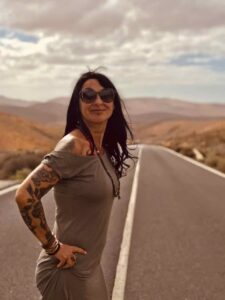 ike a Roman candle.” The flame caught when Fabi found a small advertisement in a local newspaper that said: “Do you want to change your life? Call this number.”
ike a Roman candle.” The flame caught when Fabi found a small advertisement in a local newspaper that said: “Do you want to change your life? Call this number.”
She called. The advertiser was looking for people to host travel excursions. Fabi was interviewed and hired. A few hours later, in an act one can only describe as insanely courageous, Fabi said goodbye to everything familiar: friends, family, job, boyfriend, and a nice home. She walked away from it all. Thus began a 20-year career of travel, mostly in the private yacht industry where she did everything from swabbing the poop decks to serving the boat’s wealthy owners champagne.
Fabi’s fateful choice allowed her to literally sail the high seas, sometimes on the bow of an ocean crossing sailboat; trek through jungle swamps, desolate deserts, icy mountains, and fiery volcanos; press her luck with an 800 pound, chest-thumping orangutan; embrace children from the hidden tribes of Africa; spit in the eyes of palm-sized scorpions; stare down gun-toting Arabs; and more, all while trekking through 110 countries. Boy, does she ever have some stories to tell!
Love in Valencia
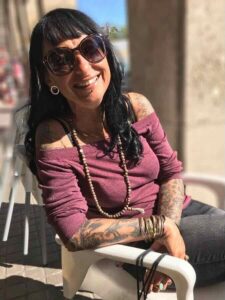 Fabi was waiting for me when I got off the train in Valencia. She led me to a small second-story room she rented in the Old Town, just big enough for a double bed, a small bathroom, and our backpacks. We threw open the windows to the cool Spring air, melodic birdsong, and warm murmur of the street life below. A nearby church tower woke us every morning with the tolling of its ancient, bronze bells. By day we would wander through Valencia’s urban parks or beaches, resting on a wooden bench to lunch on cheese sandwiches and fresh fruit washed down with a flask of cold Spanish wine. By night we would meander through the Old Town, its cobblestone streets and alleys glistening with rain, ducking into a small candlelit restaurant for a late dinner of Spanish “tapas” – small plates of savory dishes made from a variety of local ingredients — spicy ham, stuffed mussels, green and black olives, crisply fried squid, sautéed mushrooms, grilled vegetables, and other delectables.
Fabi was waiting for me when I got off the train in Valencia. She led me to a small second-story room she rented in the Old Town, just big enough for a double bed, a small bathroom, and our backpacks. We threw open the windows to the cool Spring air, melodic birdsong, and warm murmur of the street life below. A nearby church tower woke us every morning with the tolling of its ancient, bronze bells. By day we would wander through Valencia’s urban parks or beaches, resting on a wooden bench to lunch on cheese sandwiches and fresh fruit washed down with a flask of cold Spanish wine. By night we would meander through the Old Town, its cobblestone streets and alleys glistening with rain, ducking into a small candlelit restaurant for a late dinner of Spanish “tapas” – small plates of savory dishes made from a variety of local ingredients — spicy ham, stuffed mussels, green and black olives, crisply fried squid, sautéed mushrooms, grilled vegetables, and other delectables.
Tapas come from the Spanish word “tapar,” which means “to cover” or “lid.” The term was apropos to my situation, for as I mentioned, I felt I needed to “put a lid on” what was rapidly becoming a torrid romance. I had only planned to spend a few days with Fabi, but when you play with fire, well…you know! A few days turned into a few days more, and then a few more. By then I was but a week away from my rendezvous in Barcelona with Sue, whom I had told Fabi about from day one, but not vice versa. Fabi knew about Sue (to Fabi’s growing consternation), but Sue did not know about Fabi. It was past time for me to clear the air, but I needed a little push from an old friend.
The Easy Phone Call
“Beverly. I need some advice,” I said after getting my friend on the phone. “Do you have a moment?”
“Talk to me,” Beverly said.
Beverly Nelson, Ph.D., is a practicing psychologist living in San Miguel de Allende, Mexico. I became friends with Beverly and her husband Michael Bartlett after interviewing them about a course they developed based on Joseph Campbell’s acclaimed “Hero’s Journey.” You can hear that interview with them here. My friendship with Beverly and Michael deepened after I had the pleasure of visiting them in Mexico, where they graciously hosted me in their lovely home overlooking the quaint city of San Miguel. They are “salt of the earth” people. I knew I could count on Beverly to give me good counsel, and after relaying the details of my situation, I was not disappointed.
“Brant. We are the authors of our own stories,” she said to me as I anxiously paced the beach. “You can write that story as a victim or as a hero. The choice is yours. The question you must answer for yourself is: How would you write this chapter of your story as a hero?”
Note that Beverly did not tell me what to do. As all wise counselors do, she offered me a wisdom “framework,” and then let me decide for myself. What a great friend she is!
The Hard Phone Call
When I hung up the phone with Beverly, I immediately knew what I needed to do. It was a hard phone call to make, but I called Sue and came clean. She was understandably not pleased, but to her great credit, she did not rant or rave. She just calmly said: “Thank you for letting me know. Give me some time to think about it.” A day later, Sue called me back.
“I talked to some friends and my kids, and they all encouraged me to come to Barcelona anyway, but under two conditions.”
“What are they?” I nervously asked.
“First, that you be my tour guide.”
“Done,” I said. “What’s the second condition?”
“That we behave like brother and sister, not lovers. Deal?“
“Deal!” I said, and I am proud to report that we kept that deal. Sue and I had a great time in Barcelona while Fabi fretted in nearby Mallorca, but she needn’t have. I kept my word, and so did Sue, who is still a friend.
There are a lot of ways a different man might have managed this part of the love story, but this is how I chose to do it. It is, after all, my story, my “Hero’s Journey,” and no one can live it for me. “You make your bed,” my mom used to say. “And then you sleep in it.” I am okay with how this bed was made, and now it has been put away.
The Final Stretch
But as in every hero’s journey, there are multiple challenges to overcome before the young knight can return home victorious. As February 2020 turned to March, a vicious dragon had left its den in Wuhan, China and was about to change the fortunes of our bumbling hero and his ebony-haired princess.
 “Fabi, are you aware that your flight home lands you in the world’s number one hotspot for Covid infections? You are literally flying into the jaws of the Covid dragon!”
“Fabi, are you aware that your flight home lands you in the world’s number one hotspot for Covid infections? You are literally flying into the jaws of the Covid dragon!”
“Pshaw,” she said with characteristic indifference. “I don’t care about that.”
But she should have.
I returned to Richmond, Virginia to see a newborn grandchild, and Fabi returned to Milan for minor surgery. Both trips had been planned long before meeting each other, and long before Covid. Little did we know then that, like flies landing on flypaper, we would become trapped in our respective cities for months, carrying on our romance with daily video calls. Travel restrictions made it impossible for Fabi, a citizen of the European Union, to visit me in the US, and likewise impossible for me as a citizen of the US to visit her in Italy. It wasn’t until late June 2020 that we learned Türkiye was open to both of us.
On July 15, 2020, after four months apart, Fabi and I fell into each other’s arms and Istanbul’s Sabiha Gökçen International airport. We have lived in Türkiye ever since, mostly in the coastal town of Datça.
And that is how I came to live in Türkiye.
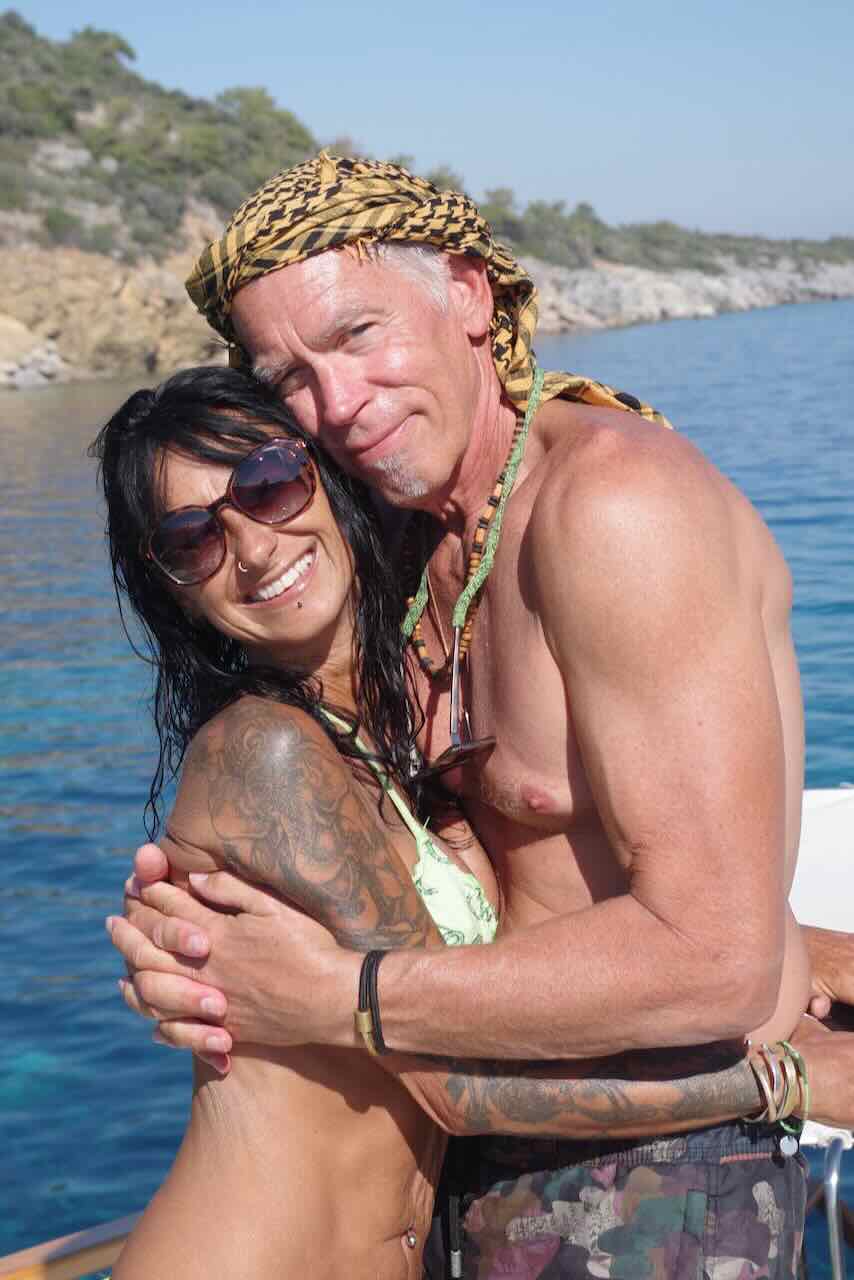
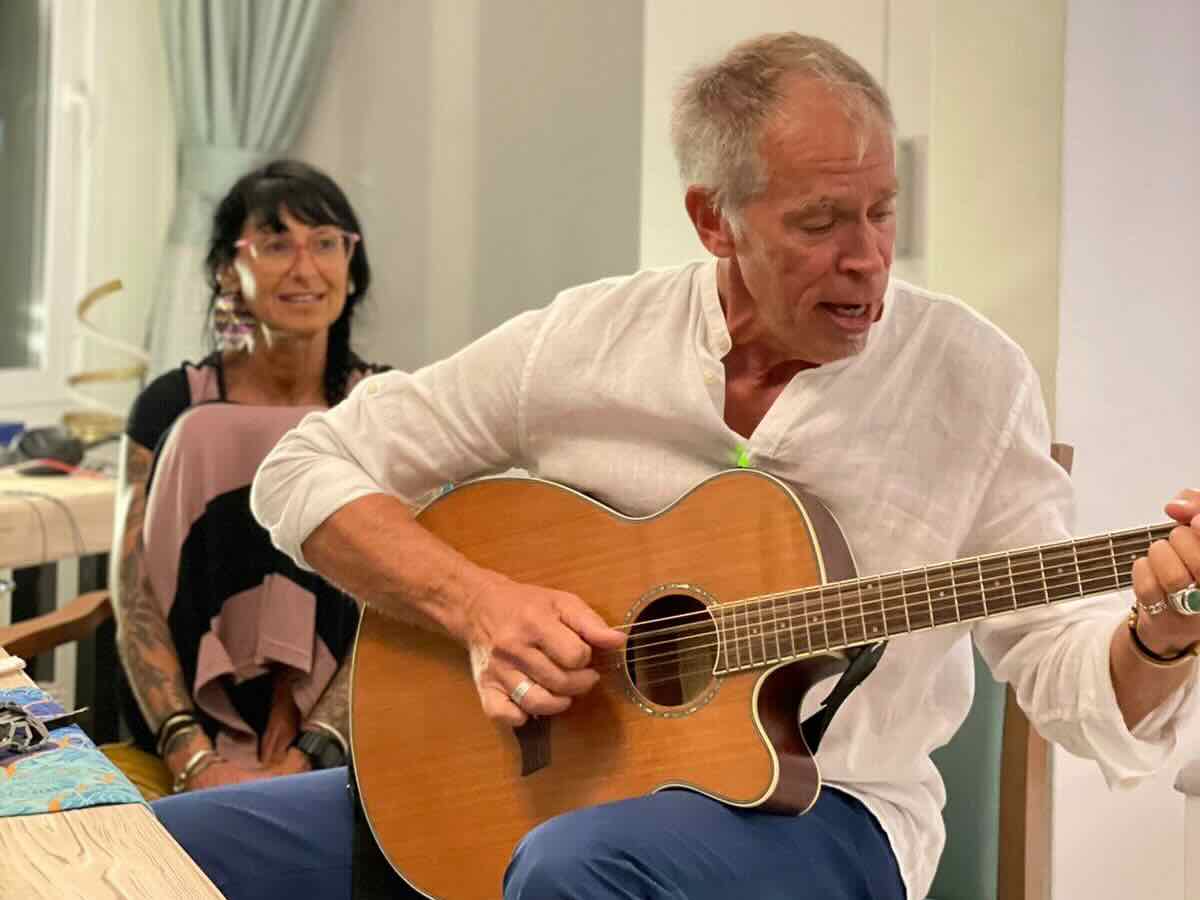
Books by Brant
Most Recent
For Christmas 2018, my brother, a pilot with American Airlines, gave me a gift that became the experience of a lifetime: 12 months of free travel anywhere American Airlines flies.
Thus began a year long journey that took me from the rocky coasts of Portugal, to the hot sands of Morocco, to the mangrove swamps of Panama, with many places beyond and between. In cheap hostels and the backwaters of the nomadic milieu, I discovered a treasure chest of colorful and fascinating people. I tell their stories and a bit of my own.
The trip became as much a spiritual and emotional journey inward as it was a literal outward one, and found me in a place those of you who are in the second half of life are likely to recognize.
With references to the philosophies of Carl Gustav Jung, Jesus, Bob Dylan, and the Buddha, Blue Skyways is an international romp by a man in his 60’s with not much more than a pack on his back, and still much to learn.
A suspense/thriller novel!
When a psychology doctoral student Brian Drecker uses advanced software to analyze dreams from around the world, he discovers odd patterns that cannot be explained. Where one person's dream ends, another's begins. Unique objects appear again and again...even though the dreamers are complete strangers.
Drecker discovers the patterns form a map pointing to an ancient, lost object. Soon after, he is mysteriously murdered, leading his deadbeat brother and estranged wife on an international race to find the treasure, and the murderer. Along the way, the troubled couple are opposed by dark forces of the religious underworld, who launch a global pandemic to ensure the map of dream's secret remains lost forever.


